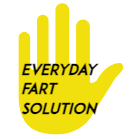How to not fart so much?
How to not fart so much? It’s a question that many people find themselves asking, often in embarrassing moments or uncomfortable situations. While flatulence is a natural bodily function, excessive gas can be socially awkward and physically painful.
To reduce excessive flatulence, it’s essential to pay attention to your diet and eating habits.
In our comprehensive guide to managing flatulence, we delve deeper into the topic, exploring the impact of certain foods and lifestyle factors on excessive gas.
We will explore some practical tips and techniques to help you reduce excessive flatulence and regain control over your digestive system.
Whether you’re dealing with chronic gas or occasional discomfort, our article is a must-read for anyone seeking practical solutions to the age-old question of how to not fart so much. So let’s embark on this informative journey together!
Why do I fart too much?
Experiencing excessive farting can be both uncomfortable and embarrassing, leaving you searching for answers. Before we delve into the effective solutions on how to not fart so much, let’s first understand the common causes behind this prevalent issue.
So, let’s take a closer look at the reasons behind excessive flatulence before we embark on the journey toward how to not fart so much.
Read on: how to hold in a fart in class?
Common Causes of Excessive Farting
Foods that Cause Gas
Certain foods are notorious for causing gas and bloating. Foods like beans, lentils, cruciferous vegetables (broccoli, cauliflower, cabbage), onions, and carbonated beverages can lead to increased flatulence.
Keeping track of your diet and identifying problematic foods can be the first step in reducing gas.
Swallowing Air
Sometimes, we unknowingly swallow air while eating or drinking, especially when we rush through meals or use straws. This swallowed air can contribute to bloating and increased farting.
Being mindful of eating habits and avoiding habits that lead to excessive air intake can help alleviate gas.

Medical Conditions
Certain medical conditions can lead to chronic gas issues. Conditions like irritable bowel syndrome (IBS), lactose intolerance, and celiac disease can cause excessive flatulence.
If you suspect an underlying medical issue, consult a healthcare professional for proper diagnosis and management.
How to not fart so much?
Farting is a natural bodily function, but when it becomes excessive, it can lead to discomfort and embarrassment.
We will explore 13 practical tips to help you put an end to excessive gas and regain control over your digestive system.
Let’s now delve into the solution of how to not fart so much and enjoy a more comfortable life.
Identify Problematic Foods
By maintaining a food journal and noting any excessive gas or bloating after eating, you can identify specific foods that trigger flatulence. Once identified, consider reducing the intake of these foods or finding suitable alternatives.
Increase Fiber Intake
While some high-fiber foods can cause gas, increasing overall fiber intake can promote better digestion and regular bowel movements. Gradually add fiber-rich foods to your diet to allow your body to adjust.
Be Mindful of Sugar Substitutes
Sugar substitutes like sorbitol and mannitol are commonly found in sugar-free products and chewing gum. These substances are not fully absorbed by the body and can lead to gas and bloating.
Limiting their consumption can reduce flatulence.
Avoid Carbonated Beverages
Carbonated beverages, such as sodas and sparkling water, can lead to increased gas and bloating in the digestive system. The carbon dioxide present in these drinks is released as gas in the gut, causing discomfort and flatulence.
To reduce excessive farting, opt for non-carbonated alternatives like water or herbal teas. By making this simple change in your beverage choices, you can experience less gas and improved digestive comfort.
Chew Your Food Thoroughly
Properly chewing your food is an essential step in the digestion process. When you chew food thoroughly, it breaks down into smaller particles, making it easier for the digestive system to process.
Additionally, it reduces the amount of air swallowed during meals, which can contribute to bloating and gas. Taking the time to chew each bite thoroughly not only aids digestion but also helps minimize flatulence and discomfort.

Avoid Eating Too Quickly
Eating too quickly can lead to swallowing excess air along with your food. When air is trapped in the digestive system, it can cause gas and bloating.
To prevent this, practice mindful eating and take your time with each meal. Chew slowly, savor the flavors, and give your body enough time to signal that you’re full.
By slowing down your eating pace, you can reduce the chances of excessive farting and promote better digestion.
Limit Chewing Gum and Hard Candies
Chewing gum and consuming hard candies might seem harmless, but they can contribute to excessive farting. When you chew gum or suck on hard candies, you tend to swallow more frequently, leading to increased air intake.
This excess air can get trapped in your digestive system, causing bloating and gas.
To reduce flatulence, limit your consumption of chewing gum and hard candies, and opt for other snacks that won’t lead to swallowing excess air.
Regular Exercise
Engaging in regular physical activity is not only beneficial for overall health but also plays a role in reducing gas and bloating.
Exercise helps stimulate digestion and keeps the gastrointestinal tract functioning smoothly. Aim for at least 30 minutes of moderate exercise most days of the week.
Activities like walking, jogging, cycling, or yoga can be excellent choices to keep your digestive system in top shape. With regular exercise, you can experience improved digestion and less discomfort from excessive farting.
Stress Management
Stress can have a significant impact on your digestive system and contribute to excessive farting. When you are stressed, your body releases hormones that can disrupt normal digestion, leading to gas and bloating.
To manage stress and reduce its effect on your gut, consider incorporating stress-reduction techniques into your daily routine.
Meditation, deep breathing exercises, yoga, or spending time in nature can help alleviate stress and promote better digestion.
Quit Smoking
Smoking not only poses severe health risks but can also contribute to excessive farting. When you smoke, you inhale air along with the harmful chemicals present in tobacco.
This excess air gets trapped in your digestive system and can lead to bloating and gas.
Quitting smoking not only benefits your respiratory health but also reduces the chances of swallowing air, resulting in less flatulence.
Probiotics
Probiotics are beneficial bacteria that promote gut health. They can help balance the gut microbiota and reduce gas production. Consider incorporating probiotic-rich foods or supplements into your diet.
Over-the-Counter Gas Relief Medications
If you experience occasional bloating and gas, over-the-counter gas relief medications can provide temporary relief. However, consult a healthcare professional if you have persistent gas issues.
Avoid Tight Clothing
Wearing tight-fitting clothing can put pressure on your abdomen, leading to discomfort and gas build-up. When clothing is too constricting, it can hinder proper digestion and contribute to bloating and flatulence.
To prevent these issues, opt for looser-fitting garments that allow your digestive system to function freely. Comfortable clothing not only promotes better digestion but also reduces the chances of excessive farting.
Frequently Asked Questions
Is it normal to fart frequently, or could it indicate a health issue?
Occasional farting is normal, but excessive and persistent flatulence might be a sign of an underlying health issue. If you are concerned, consult a healthcare professional for proper evaluation.
What are some common foods that cause excessive gas?
Foods like beans, lentils, broccoli, cabbage, onions, carbonated drinks, and high-fat foods are known to cause gas and bloating.
Can drinking water lead to farting?
Drinking water is essential for hydration and generally does not lead to excessive farting. However, gulping large amounts of water might cause you to swallow air, which can contribute to gas.
Is excessive nighttime flatulence a sign of an underlying medical condition?
In some cases, excessive nighttime gas can be associated with medical conditions such as irritable bowel syndrome (IBS) or other gastrointestinal issues. If you have concerns, it’s essential to consult a healthcare professional for proper evaluation and diagnosis.
Looking for tips on how to pass gas discreetly while using the restroom? Check out our guide on how to fart quietly on the toilet.
Conclusion
To conclude, learning how to not fart so much involves a combination of dietary changes, mindful eating, stress management, and regular physical activity.
By adopting these strategies, you can achieve a healthier and more balanced digestive system, leading to fewer instances of excessive flatulence and improved overall well-being.
We hope this guide has helped you in understanding how to not fart so much and empowered you to make positive changes for better digestive health.
Remember that everyone’s body is unique, so it’s essential to listen to your body’s signals and consult a healthcare professional if you have any concerns. With the right approach, you can reduce excessive gas and enjoy a more comfortable and gas-free life.



